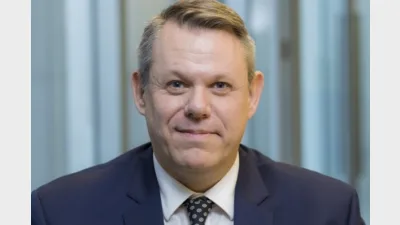IFM to build profits and focus on flexibility
Investor-owned fund manager IFM plans to generate financial flexibility by delivering a profit in spite of reservations from its shareholders, according to new chief executive Brett Himbury.
“We are going to make a profit as a business — I’ve told our industry fund shareholders that we’re going to do that. Most of them have said ‘don’t make a profit, we want it in the form of lower fees’, [but] we’ve said we must compete with the Macquarie Banks, Tyndalls, whoever else you want to name, and in order to do that we need financial flexibility,” Himbury said.
IFM’s cost base has increased three fold over the past four years as the manager opened offices in London and New York, recruited new staff and improved systems, he said.
“I don’t believe there’s a fund manager anywhere in the world that has had the guts, temerity or shareholder support to triple its cost base because it’s been the right thing to do by its investors … while revenues have gone to hell in a hand basket,” he said.
To be competitive, the manager needs to attract and retain talent, potentially open further offices in places like south east Asia, and continue to invest in improved systems and products, he said.
IFM benefitted from a unique ownership structure where it is wholly owned by around 35 industry funds that invest in the manager and make up its major clients, Himbury said.
The balance of that structure and the culture that is driven by that combined with the fact that the firm wants to compete with the best in the world is a great combination, he said.
“We need financial flexibility to compete,” he stressed. “We must never lose sight of the fact that our responsibility is to perform, there’s a lot of other choice [in the market], and we need the financial flexibility to ensure that that performance comes about,” he said.
“Our focus over the next few years is to make sure we not only bring that industry ethos and that not-for-profit ethos but we absolutely compete with the best in the world,” he said.
The funds management industry as a whole needs to make sure the focus is on net return to members rather than just costs, Himbury said.
“We’re really worried that in an environment where trustees have a greater accountability, the easiest thing for them to measure is cost and they will make simple decisions that will cost the long-term wealth of Australians,” he said.
“If we dumb it down and we have exposure just to listed assets classes on an index basis paying five basis points, it will be a false economy to save investors 10 or 20 basis points at the expense of a potential 100, 200 plus additional basis points they might get per annum by investing in good quality, longer-term assets.”
Recommended for you
First Nations Australians have faced systemic barriers accessing super, with rigid ID checks, poor service, and delays compounding inequality.
“Slow and steady” appears to be the Reserve Bank’s approach to monetary policy as the board continues to hold on to its wait-and-see method.
AFCA’s latest data has shown a decline in complaints relating to superannuation, but there is further work to be done, it has warned super funds.
Limited exposure to fossil fuel companies has positively impacted the performance of Australian Ethical’s balanced and growth funds, the super fund says.











